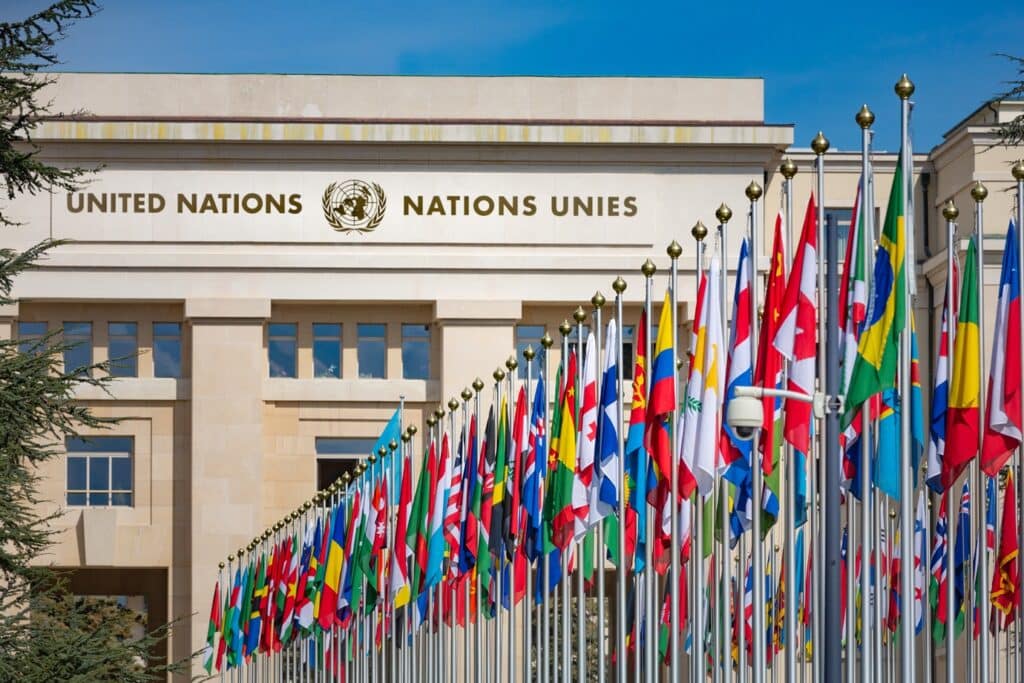Saudi Arabia has been chosen as the chair of the United Nation’s top forum for women’s rights and gender equality, despite its egregious women’s rights record.
The nation was the only candidate to chair the Commision on the Status of Women and was unanimously confirmed to the role without a vote, which is typical for this post.
When the outgoing chair, the Filipino envoy to the UN, Antonio Manuel Lagdameo, asked the 45 members if they had any objections, it’s reported there was silence in the chamber.
“Saudi Arabia’s abysmal record when it comes to protecting and promoting the rights of women puts a spotlight on the vast gulf between the lived reality of women and girls in Saudi Arabia, and the aspirations of the Commission,” said Amnesty International’s Deputy Director for Advocacy, Sherine Tadros, adding that the country can’t “prove its commitment to women’s rights merely by securing a leadership role in the Commission.”
“Saudi Arabia’s election as chair of the UN Commission on the Status of Women (CSW) shows a shocking disregard for women’s rights everywhere,” said the United Nations director at Human Rights Watch, Louis Charbonneau.
Charbonneau said HRW tried to lobby other countries among the current 45 CSW members to speak out against the appointment of Saudi Arabia to UN leadership, but that everyone was quiet.
Gender equality is a huge upward battle in Saudi Arabia. The 2023 Global Gender Gap Index ranks the nation at only 131 out of 146 countries, looking at gender parity progress across four dimensions: economic opportunities, education, health and political leadership.
Women’s economic participation across the Kingdom’s society is restricted by the strict interpretation of Islamic law. A Saudi wife is required by law to obey her husband in a “reasonable manner”, while her husband’s financial support is dependent on the wife’s “obedience”. Refusal of sex by wives is another “legitimate excuse” for a Saudi husband to retract financial support.
Up until a few years ago, women in Saudi Arabia were not allowed to drive, and it was only in 2019 that the nation allowed women aged over 21-years-old to obtain a passport and travel without permission from a male guardian. And Saudi women have only been allowed to live alone without a male guardian since 2021.
Women’s Agenda has reported on multiple cases of Saudi women being arrested and sentenced to prison for speaking out. In August 2022, Salma al-Shehab was handed a 34-year prison sentence for using her Twitter account to retweet about women’s rights.
This week, Amnesty International published a report highlighting how a leaked draft of Saudi Arabia’s first written penal code would have further catastrophic consequences for women in the country.
The code criminalises “illegitimate” consensual sexual relations, homosexuality and abortion and fails to protect women and girls from gender-based violence. It also codifies use of the death penalty as one of the primary punishments and continues to permit corporal punishments such as flogging, according to Amnesty International.
UN Women– the UN’s gender equality organisation– found last year that gender disparities are worsening globally, and if trends continue, more than 340 women and girls will live in extreme poverty by 2030, and close to one in four will experience moderate or severe food insecurity.
An estimated 110 million girls and young women around the world will be out of school in 2030 as well. And the next generation of women will still spend an average of 2.3 more hours per day on unpaid care and domestic work than men, unless more investment is put towards women’s empowerment.
According to UN Women’s most recent report, at the current rate of progress, it will take 286 years for the world to achieve gender equality.

